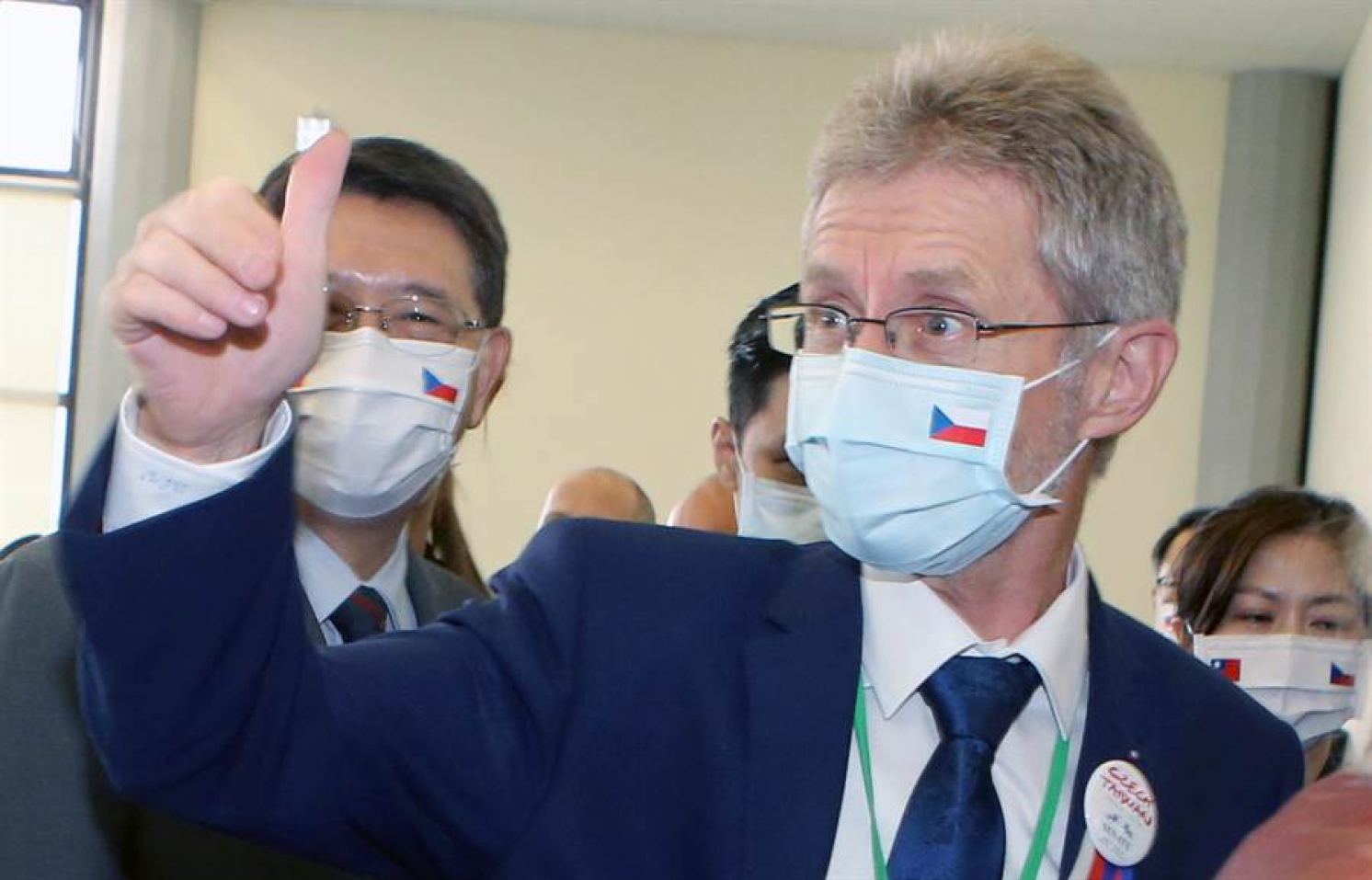
This Week in Taiwan 0830-0905
August 31: The American Institute in Taiwan declassified two 1982 telegrams related to arms sales to Taiwan. They reveal that the capability and quantity of weapons provided to Taiwan is dependent upon the military threat posed by the People's Republic of China. If China were to threaten regional security by adopting a hostile or aggressive position or establish military projection capabilities, the United States will increase arms sales with Taiwan.
September 1: The Chinese Military capability report published by the Ministry of Defense on August 31 indicates that the People's Liberation Army (PLA) is currently strengthening its military communications ability, which along the southeastern coast of mainland China can paralyze Taiwan's air, sea, and counter defense systems and poses a grave danger to Taiwan.
A latest military assessment of China released by the Pentagon on September 1 indicates that the PLA has the world's largest navy equipped with more than 200 nuclear warheads. China's capability in ship-building, ballistic and cruise missile development and integrated air defense systems are on par or even superior to that of the United States.
September 2: The Executive Yuan released a new design of Taiwan's passport cover, reducing the font size of "Republic of China" in English, wrapping the official name across the national emblem, and enlarging significantly "Taiwan" in English. The new design is expected to be issued in January 2021.
At the press conference, Minister of Foreign Affairs explained that this was done to avoid people mistaking us to be "Chinese." The Kuomintang (KMT) criticized the passport cover revision as a conscious attempt by the ruling Democratic Progressive Party (DPP) to intensify political differences on national identity. The move does not help Taiwan's international standing at all and only exposes the narrow-mindedness of the DPP's governance.
September 3: The Ministry of Economic Affairs has announced a new regulation forbidding agents and distributors for mainland Chinese over-the-top streaming media services in Taiwan, effectively immediately. Agent OTT Entertainment announced that it would terminate its agency arrangement to sell iQiyi membership services. OTT Entertainment Chairman Fan Li-da stated that he feels reluctant about the ban but will comply. The company will take responsibility for consumer rights before the ban takes effect.
September 4: President of the Senate Miloš Vystrčil of the Czech Republic delivered a speech at the Legislative Yuan on September 1. In his address, Vystrčil quoted the famous "Ich bin ein Berliner" line of U.S. President John F. Kennedy, then stated "I am a Taiwanese" to express his support to the people of Taiwan. Vystrčil is the first legislative speaker from a country which is not a diplomatic ally to speak before the Legislative Yuan. He concluded his six-day visit to Taiwan on the evening of September 4. Before his departure, Vystrčil expressed that the Czech Republic and Taiwan have realized a consensus on freedom and democracy, and he looks forward to establishing direct flights between the two countries.
September 5: Carry Mask, which is part of Taiwan's so-called "national mask production team" was revealed to have imported 3.37 million pieces of non-medical grade face masks from mainland China, changed their labeling, and mixed them with domestic Taiwanese medical face masks to sell throughout various locations in Taipei, New Taipei, and Yilan. The Ministry of Health and Welfare ordered the company's plant in New Taipei to shut down. After an interview by the prosecution, the company's leader Lin Ming-chin was released on a NT$3.5 million (about $119,000) bail.
September 6: The KMT's cross-strait policy discourse, which has gone through much discussion and controversy, passed in the National Party Congress. Under the 1992 Consensus based upon the Republic of China (ROC) Constitution, The KMT aims to continue cross-strait interactions, oppose Taiwan independence and "one Country, Two Systems," and call upon the Chinese mainland to renounce the use of force against Taiwan. Chairman Johnny Chiang declared that the KMT's core value is to defend the ROC.